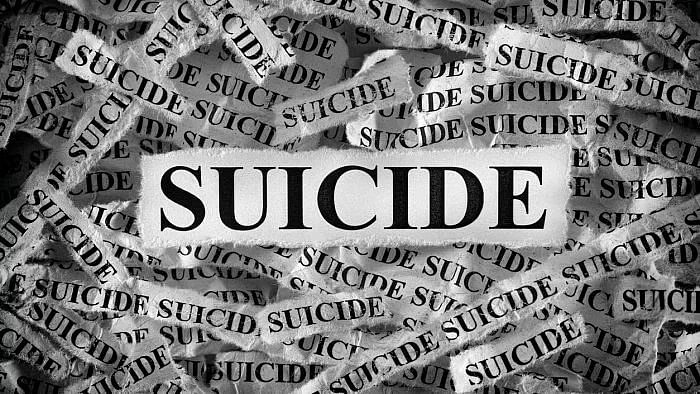
Representative image with the word 'suicide'.
Credit: iStock Photo
Mysuru: Experts say that the problems and trauma faced by suicide loss survivors are not paid much attention to.
On the sidelines of Suicide Prevention Month that is celebrated in September, V R Priyanka, a Mysuru-based certified suicide prevention gatekeeper said, “We know that a life is lost to suicide every 40 seconds, in India. But, do we think of the lives of 135 people that are affected around each suicidal death? This is a forgotten group that needs a little more care”.
Re-engage in life
Priyanka, a psychologist, who researched on ‘Suicide prevention’ for her PhD degree, said, “It is never easy to overcome the death of a loved one. Be it after years of suffering with illness, by accident or by suicide. However, people in grief are expected to resolve or become less intense and re-engage in life within six months. Sometimes, for some people, this process becomes complex and prolonged. More so, if they have lost their loved one, by suicide”.
“Loss by suicide is usually unexpected. Often, survivors are not ready to accept that the death of their loved one was intentional. Unlike in other forms of death, wherein survivors can direct their anger towards God, fate or destiny, their loved one is the cause for the result, in suicide. They may feel guilty, for not having done ‘enough’, to help the victim deal with stressful circumstances. On the other hand, they feel abandoned, for having been left behind. This mixed emotion makes their grief more intricate, intense and difficult to sort out. Suicide loss survivors would be left with many unanswered questions,” Priyanka pointed out.
Better awareness
P D Kavana Chondamma, a research scholar in Psychology, University of Mysore, said, “Earlier, a lack of awareness surrounded the causes for the suicide, leaving the blame unfairly, either on the victim or the family, for failing to notice the signs. The aftermath of such a tragic incident can lead to a range of mental health challenges within the family, like depression, post-traumatic stress disorder (PTSD), ambiguous loss, and anxiety. However, with a growing awareness on the factors that can drive a person to suicide, there is a shift. The society, now, understands that it’s rarely about one individual or one situation”.
“Support systems are evolving. Families of suicide victims are increasingly connecting to mental health professionals - psychologists, social workers, and NGOs - who offer counselling and care, helping them navigate the intricate path of grief and healing. When such incidents occur, the responsibility falls on mental health practitioners, to help and support the families of suicide victims, to navigate and cope through the emotional turmoil that they go through,” Kavana said.